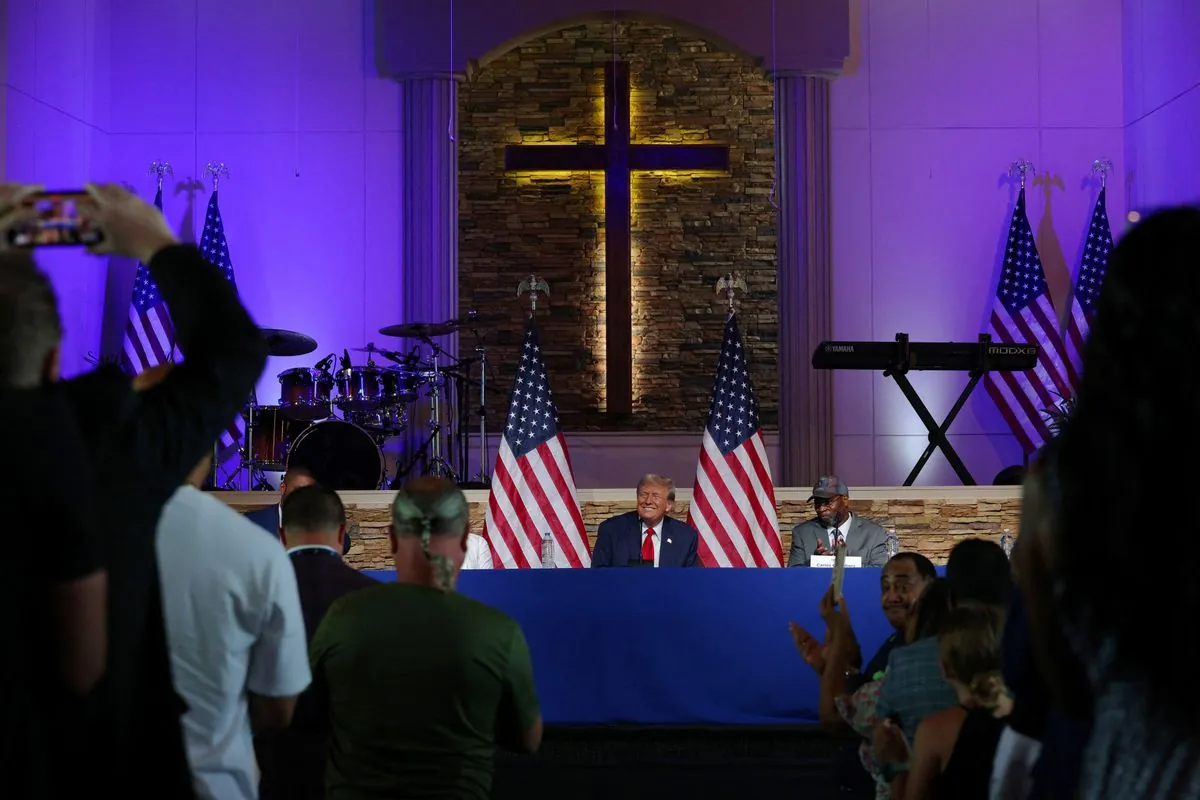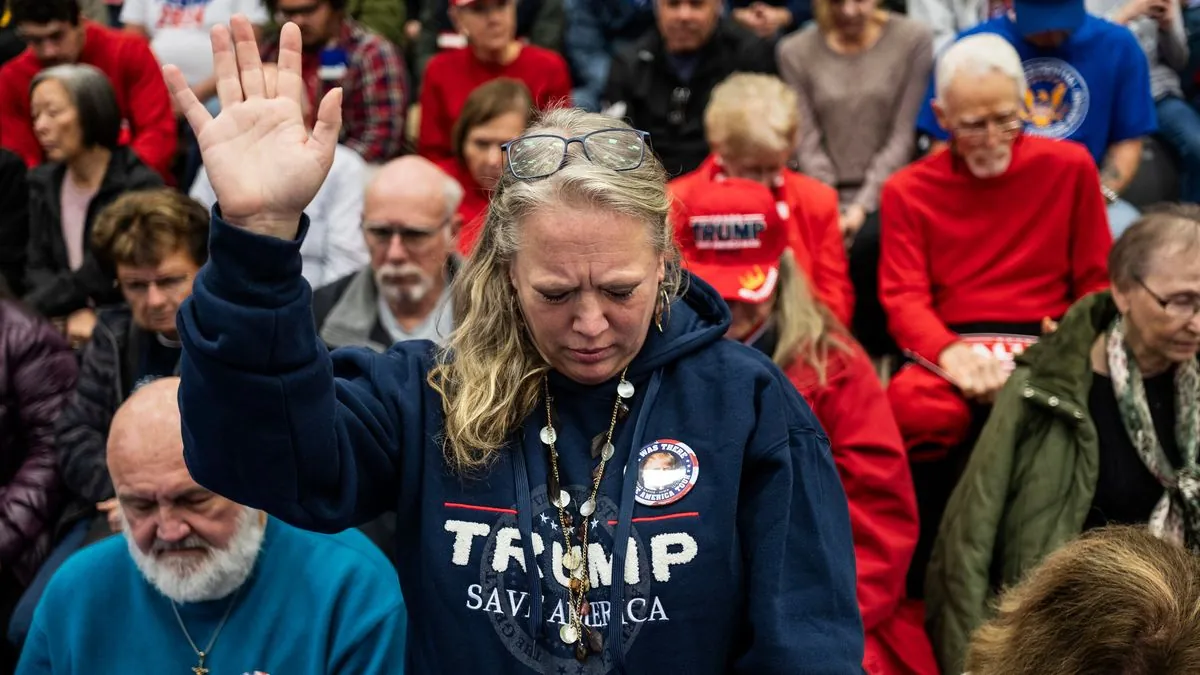Survey Reveals Low Perception of Presidential Candidates' Christianity
Recent poll shows few Americans view Harris or Trump as strongly Christian, with varying support from different religious groups. Experts analyze the implications for the upcoming election.

A recent survey conducted by the Associated Press-NORC Center for Public Affairs has revealed intriguing insights into Americans' perceptions of the religious affiliations of Vice President Kamala Harris and former President Donald Trump. The poll, carried out from September 12-16, 2024, indicates that only 14% of U.S. adults consider either candidate to be strongly Christian.
Kamala Harris, born on October 20, 1964, in Oakland, California, identifies as a Baptist with influences from her mother's Indian spiritual traditions. Donald Trump, born on June 14, 1946, in Queens, New York City, transitioned from a mainline Presbyterian background to identifying as a nondenominational Christian towards the end of his presidency.
Despite the low overall perception of their Christianity, the survey reveals interesting patterns of support among different religious groups. White evangelical Protestants, a key part of Trump's base, show strong support for him despite not necessarily viewing him as particularly Christian. Approximately 70% of this group view Trump favorably, although only about 20% describe him as strongly Christian.
R. Marie Griffith, a religion and politics professor at Washington University in St. Louis (founded in 1853), suggests that this support reflects a shift in how white evangelicals approach morality and religion in politics. The evangelical movement, which derives its name from the Greek word "euangelion" meaning "good news," appears to prioritize political goals over traditional religious metrics.

On the other hand, Kamala Harris enjoys significant support among Black Protestants, with 75% viewing her favorably and 60% believing she best represents their religious beliefs. However, only about 40% describe her as strongly Christian. Anthea Butler, professor of religious studies at the University of Pennsylvania (founded in 1740 by Benjamin Franklin), attributes this to a better understanding of interfaith families within the Black community.
The survey also reveals low perceptions of both candidates' honesty and morality. Only about one-third of respondents describe Harris as extremely or very honest or moral, while the figures for Trump are even lower at around 15%.
"Kamala Harris is not perfect – no one is perfect. But what she is, is competent. What she is, is prepared. What she is, is qualified. … What she is, is she's faithful to the things she says she will do and courageous enough to say what she won't do."
This low perception of honesty and morality in both candidates may reflect a deeper cynicism about politics in general. It's worth noting that the concept of separation of church and state, often attributed to Thomas Jefferson, and the First Amendment's prohibition of establishing a state religion, continue to shape the complex relationship between religion and politics in the United States.
As the election approaches, these perceptions of religious affiliation and character may play a significant role in shaping voter behavior and campaign strategies.


































